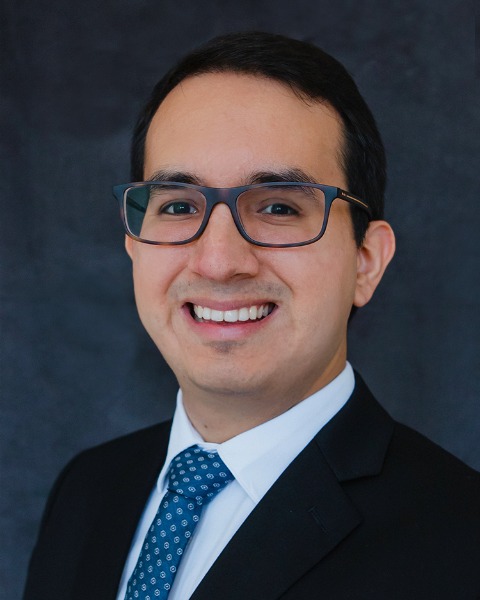Effects of Recent Use of Checkpoint Inhibitors on Outcomes of Cancer Patients With Septic Shock
-

John Cuenca, MD (he/him/his)
Clinical Research Assistant
The University of Texas MD Anderson Cancer Center
Houston, TexasDisclosure information not submitted.
-

Cristina Gutierrez, MD
Associate Professor of Critical Care Medicine
University of Texas MD Anderson Cancer Center
Houston, TexasDisclosure information not submitted.
-

Nirmala Manjappachar, MD
Internal Medicine Resident Physician
Anne Arundel Medical Center
Annapolis, MDDisclosure information not submitted.
-
CR
-
PM
Peyton Martin, BS
Research Assistant
The University of Texas MD Anderson Cancer Center, Texas, United StatesDisclosure information not submitted.
-

Dereddi Raja Reddy, MD, FACP FCCP
Assistant Professor, Program Director MS4 McGovern Medical School
MD Anderson Cancer Care Center
Houston, TexasDisclosure information not submitted.
-
JB
Joshua Botdorf, DO
Assistant Professor
University of Texas MD Anderson Cancer Center, Texas, United StatesDisclosure information not submitted.
-
NR
Nisha Rathi, MD
Associate Professor
The University of Texas MD Anderson Cancer Center, United StatesDisclosure information not submitted.
-

Joseph Nates, MBA, MD
Professor, Deputy Chair, Director ICUs
University of Texas MD Anderson Center
Bellaire, Texas, United StatesDisclosure information not submitted.
First Author(s)
Co-Author(s)
Title: Effects of Recent Use of Checkpoint Inhibitors on Outcomes of Cancer Patients with Septic Shock
INTRODUCTION/HYPOTHESIS: T-cell exhaustion is associated with increased mortality in sepsis. Recent studies evaluate immune checkpoint inhibitors (ICI), an approved cancer therapy, as a mean to improve T-cell proliferation and prevent T-cell exhaustion during sepsis. Effects of ICIs on T-cells are observed up to 3 months after their administration. We hypothesized prior ICI would be associated with reduced severity of illness and improved outcomes in patients that developed septic shock,
Methods: Retrospective cohort of cancer patients admitted to the ICU with septic shock by the Sepsis-3 criteria between 04/01/2016-03/31/2019. Patients treated with ICI 3 months before ICU admission were compared to patients with the same cancer diagnosis who did not receive ICI (non-ICI). Measured outcomes were SOFA score, organ support, ICU, and hospital mortality.
Results: Of 572 patients, 67 (12%) were treated with ICI. Median time from ICI administration to ICU admission was 58 (24-78) days. There were no significant differences in age and performance status. The median Charlson comorbidity index was higher in ICI patients (7[5-9] vs 6[4-8], P=.048) and there were more solid tumor patients (60% vs 39%, P=.001) with metastatic disease (88% vs 72%, P=.042) in the ICI group. Admission (9[7-13] vs 10[8-13], P=.245) and maximum (12[9-16] vs 13[10-16], P=.598) SOFA scores were similar. Invasive mechanical ventilation was required in 58% of both groups. The development of acute kidney injury (72% vs 78%, P=.275) and need for renal replacement therapy (22% vs 15%, P=.148) were also similar. There were no differences in the median ICU (5[3-11] vs 5[2-10], P=.279) and hospital (19[10-30] vs 15[7-30], P=.118) length of stay. The ICU (55% vs 64%, P=.174) and hospital (66% vs 74%, P=.146) mortality rates did not differ. Although not significant, there was a trend towards lower ICU mortality in patients that had received ICI 1-month prior to the ICU admission compared to the non-ICI group (41% vs 64%, P=.069).
Conclusion: This preliminary data suggests that prior ICI treatment in cancer patients did not reduce organ failure or mortality associated with septic shock. It is unclear if the time from the last dose of ICI to ICU admission might have influenced our findings. Larger studies are needed to validate and further examine our results.
